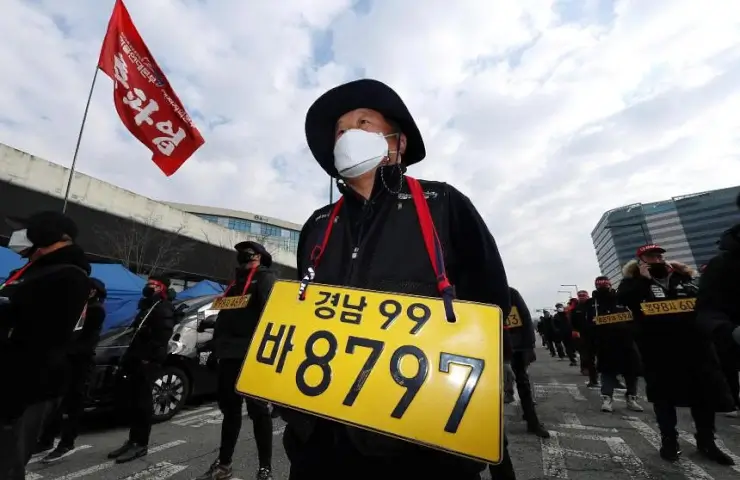The South Korean government required striking truckers in the steel and petrochemical industries to return to work on Thursday, extending the order to return to work outside the cement industry amid a prolonged nationwide strike.
In opening remarks at a televised session In the Cabinet of Ministers, Prime Minister Han Dak-soo instructed members of the government to issue a “get started” order.
Tens of thousands of striking truckers are demanding a permanent and wider minimum wage program. The government has so far refused, but said it could extend it beyond the current three years.
Media reported that the Democratic Party, the opposition party with a majority in parliament, decided to support the government's proposal to extend the term.
“The government remains steadfast. We absolutely need to break the vicious cycle of unjustified organized action,” Khan said.
No further negotiations are planned, according to a senior union official.
A second strike in less than six months has hampered supplies from cars to fuel, costing the country 3.5 trillion won (about $2.66 billion) in the first 12 days, the government said this week.
About a third of the 2,000 fuel trucks are on strike, and As of Wednesday afternoon, 78 gas stations had run out of fuel across the country, many of which were in the Seoul metropolitan area, according to government data.
Last week, the government issued a start-up order to force 2,500 striking drivers into cement industry back on the road. Some 35% of the country's 2,600 oil truck drivers are on strike, according to media reports citing the Ministry of Industry.
Steel supplies are at 48% of normal levels, while petrochemical supplies have fallen to around 20%, it said. the Department of Transportation on Thursday, raising fears that these disruptions could hurt auto and ship production.
Petrochemical companies are considering cutting production as early as this weekend due to lack of raw materials and room for idle stocks.
>



